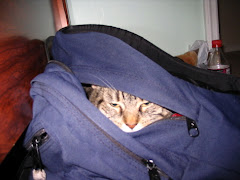
The cartoonist Hergé is popular again, as is his adventurous reporter Tintin, who will be featured in a Steven Spielberg movie due out in 2011.But if you go to the Brooklyn Public Library seeking a copy of “Tintin au Congo,” Hergé’s second book in a series, prepare to make an appointment and wait days to see the book.
“It’s not for the public,” a librarian in the children’s room said this month when a patron asked to see it. The book, published 79 years ago, was moved in 2007 from the public area of the library to a back room where it is held under lock and key.
The move came after a patron objected, as others have, to the way Africans are depicted in the book. “The content is racially offensive to black people,’’ a librarian wrote on Form 286, also kmown as a Request for Reconsideration of Library Material.
In particular, the patron took issue with illustrations that she felt had the Africans “looking like monkeys,’’ but other elements of the book have also drawn criticism over the years — from the broken French that the natives speak to their general simple-mindedness.
Libraries often have policies that allow patrons to complain about content they find objectionable. New York City libraries have received almost two dozen written objections since 2005. But the book about Tintin (pronounced Tantan in his native Brussels) was the only challenged item to have been removed from the shelves, library officials said.

The objection was reviewed by a panel, in keeping with the library’s policy. It determined the book no longer belonged on the open stacks, but rather should be tucked away in the Hunt Collection, which are kept in a vault-like room accessible only to staff members.
“This is a special collection of historic children’s literature that is available for viewing by appointment only,” the library said in a letter explaining its decision.
The American Library Association said it knows of up to 700 formal book challenges a year in the United States, but it acknowledged that its tallies are incomplete. In general, librarians are trained to tackle any complaints about books with a polite demeanor. But they are also instructed to stand firm in defending the book’s presence in the library.
On the rare occasions when a formal objection is upheld by library officials, a book may be removed or put in a less accessible area; that way, the challenged item remains in the library’s collection, although it is harder to find.
“You do walk a fine line, making sure your materials are accessible, while being respectful of community standards,’’ said Alice Knapp, a former president of the Connecticut Library Association.
Public school libraries also face these quandaries. The American Civil Liberties Union Foundation of Texas, for example, found 102 formal challenges in 43 school districts during the 2007-8 school year. Twenty-seven books were banned, including Kay Thompson’s “Eloise in Paris,’’ whose heroine visits a museum with nude artwork.
For fans of Hergé (a k a Georges Remi), who created Tintin in 1929 and died in 1983 with the last story unfinished, the tempest is nothing new. The Tintin stories, loved for the main character’s derring-do and the exotic locales, have also been criticized for material that offends racial, ethnic and religious groups. In response, Hergé revised many illustrations, though vestiges remain.

In Tintin’s Congo adventure, recent versions have revised panels in which the hero had lectured the natives on their colonial ties to Belgium. Now he teaches them arithmetic.









No comments:
Post a Comment